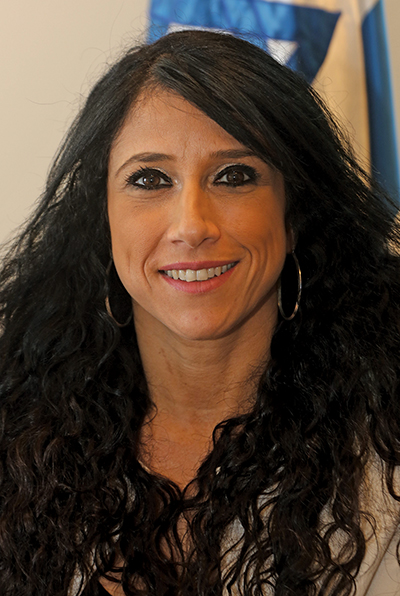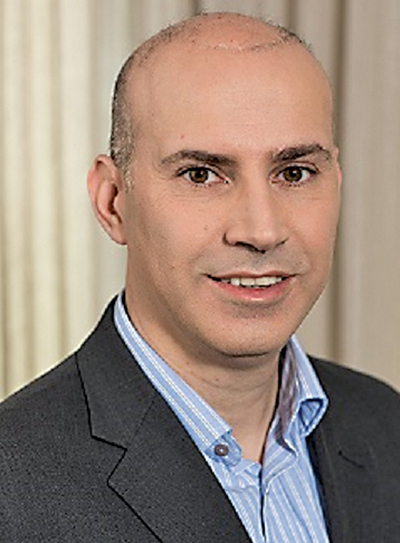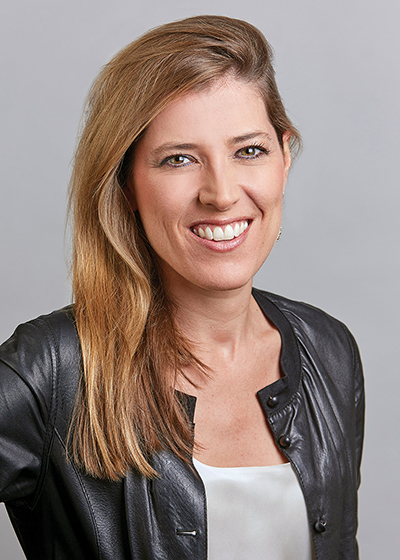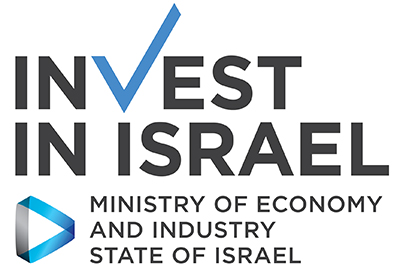When a location is a candidate for investment by a corporate multinational, supply chain vectors and supplier clusters are always key considerations. In a modern, tech-driven digital economy like Israel’s, that supplier ecosystem often takes the form of service provision — firms and expertise in such professional areas as law, insurance, real estate and accounting, among other professions.
How deep is their knowledge base? Consider the fact that one of the most respected cross-border investment and business law firms in Israel — Amit, Pollak, Matalon & Co. (APM & Co.) — was founded in 1956 by Nahum Amit, known by many as one of the founding fathers of the nation’s manufacturing sector. Today the firm represents worldwide clients from an array of global sectors, from defense and energy to real estate, high-tech and, of course, Israel’s potent venture capital community.

Ziva Eger, Chief Executive of Invest in Israel and the Industrial Cooperation Authority (ICA) at the Israeli Ministry of Economy and Industry, says professional services firms are a key part of intersectoral roundtables that Invest in Israel regularly convenes. Their contributions have been particularly noticeable since Israel launched its Innovation Box tax regime as part of the 2017-2018 state budget that is tailored to the post-BEPS world, encouraging multinationals to consolidate IP ownership and profits in Israel along with existing Israeli R&D functions.
“While taxes may be inevitable, innovation is not,” she says. “Though increasingly essential, innovation still needs to be fostered and nurtured. That is why Israel, renowned as the ‘Startup Nation,’ continues to take bold and innovative steps to make sure that its economy remains competitive, and that its innovation and professional services ecosystem remains among the global leaders for the foreseeable future.”
Sometimes the company growth comes from the services sector itself. Case in point: Fiverr, a Tel Aviv–based firm that was an Israeli startup in 2010. Today, the online marketplace for freelancers to share professional services to customers worldwide has delivered more than 40 million “gigs” — or jobs — across 190 countries.
Generalists Welcome
Global consultancy PwC is a respected part of the Israeli services ecosystem, and in 2018 launched in Tel Aviv a global Cybersecurity Centre of Excellence. A recent PwC report noted the importance of Israeli innovation: “From agtech to biotech, and from mobiletech to cleantech to real estate services, the innovation unfolding commands the attention of sovereign and institutional, family office, and private equity investors from around the world,” PwC stated. “Moreover, as the government endeavors to grow Israel’s non-tech economy, its support for growing these sectors is likely to expand. This includes a plan to expand tourism from 3% to 10% of GDP … With the growth of tourism, the corollary demand for both real estate and infrastructure — and sustainability — over the longer term merits a close look from global real assets.”

Rubi Suliman, advisory and high-tech leader for PwC’s Tel Aviv office, says the sheer volume and diversity of multinational corporate activity in Israel — where more than 7,000 tech companies have operations — automatically raise the game of PwC and other service providers.
“The service providers are multinational as well,” he says. They also are multilingual. “You have to be very, very global. In a small country, people tend to be generalists. In the eyes of clients, that’s an advantage in most cases. A client expects a service provider to provide a full 360-degree solution around his business.”
Asked how business tourism and general tourism might prepare the way for more FDI, Suliman says, “Endless amounts of delegations are coming” to see Israeli innovation in action, including a surge of Asian visitors. Investments in R&D and innovation centers often follow. Past government focal points have included cybersecurity and fintech, he says. Autonomous driving is next, as a plan aimed for 2022 aims to feature companies operating autonomous fleets within Tel Aviv. “In a small country it is easier to regulate things and to change things,” he says. “I think it’s a great test place for autonomous vehicles and many other technologies.”
Service provision increasingly includes REITs and other real estate players. “A lot of the world’s largest real estate investors are talking about being service providers rather than fixed asset managers,” says Dr. Alexis Crow, Lead, Geopolitical Investing, for PwC, noting that many are working more like hospitality providers.
“There are many Israeli WeWork-like companies,” Suliman adds, “and some of the municipalities are opening coworking spaces. Everyone is into this,” including PwC itself, as it plans to move to a tech-enabled space in the center of Tel Aviv that’s more attuned to the new generation.
Suliman says Israeli-based resources and talent are brought to bear on companies’ global business, issues and challenges.
“Cybersecurity is a great example,” he says. “It’s one of those areas that very distinctly shows the advantage of Israeli knowledge” when it comes to critical infrastructure for large industries or financial institutions. “We are definitely drawing from that talent, and creating something for the entire network.”

That talent base is increasing, as Israel’s positive population growth includes attraction from abroad. “One person I mentored is looking at opportunities in Europe, and I’m also encouraging him to think about Israel,” says Crow. Ironically, for those who think of Israel as a political hot spot, she’s also witnessed migration to Israel from European countries where politics have grown polarized.
“They bring their capital, and their desire to invest,” she says, with notable numbers coming from France, Italy and the UK. There’s also strong inbound and outbound activity with the U.S., as expats in both lands rethink where to call home. The flow includes businesses emerging from Israeli universities.
“The number of entrepreneurs coming from the top three universities is staggering,” says Suliman. Combine that with the professional sectors, and it makes for “a tremendous stream of talent flowing in and out.”
A stream that continues to slake the corporate thirst for innovation and progress.

This Investment Profile was prepared under the auspices of Invest in Israel, an integrative body within the Ministry of Economy and Industry that serves as a one-stop shop for a wide range of potential and existing investors, identifying lucrative investment opportunities, mapping potential obstacles and helping to fast-track investment. For more information, visit www.investinisrael.gov.il or send an email to InvestInIsrael@economy.gov.il.

